The views, opinions, services and products shared in this post are solely for educational purposes and do not imply agreement or endorsement by Advance CTE, nor discrimination against similar brands, products or services not mentioned.
 In the constantly evolving education landscape, YouScience® is revolutionizing how students discover their best-fit postsecondary education and career pathways with YouScience® Brightpath and aptitude-enabled education.
In the constantly evolving education landscape, YouScience® is revolutionizing how students discover their best-fit postsecondary education and career pathways with YouScience® Brightpath and aptitude-enabled education.
Brightpath is the only aptitude-based guidance platform that leverages data and artificial intelligence to help individuals identify their aptitudes, validate their skills, and get matched with educational and career pathways.
Brightpath is used in all 50 states and is offered as a state-wide contract in several. Here are five reasons educators and state CTE leaders should evaluate Brightpath:
- Accelerate deployment without headcount: Brightpath makes it easy to scale state-wide programs with consistency and speed without adding headcount.
- Improve quality of results: Educators report improvements in CTE participation and love how easy it is to use Brightpath to achieve their goals.
- Access all products with a single sign-on: Access one or all of our core products with a single sign-on. This includes: Aptitude & Career Discovery, Education & Career Planning (including Course Planner and Resume Builder), Work-Based Experiences, Industry Certifications, and more.
- Support education and career initiatives: Join other educators at the state or local level who choose Brightpath for delivering value to students, educators, and employers.
- Utilize best-in-class data and analytics: Access custom or standardized reports that help you show what’s working, gain access to funding, and advance legislative priorities.
Aptitudes: The key to unlocking potential
Aptitudes are an individual’s natural ability to learn or perform skills regardless of environment. Knowing aptitudes is one of the most powerful accelerators to help empower individuals to leverage their natural gifts and find success. They expand a student’s understanding of what’s possible beyond what they know and have been exposed to. By understanding their aptitudes, students gain invaluable insight into the paths that align with their interests and abilities.
How does Brightpath work? Students engage with a series of timed brain game exercises that are designed to reveal their aptitudes and interests while also identifying careers and educational opportunities that align with both.
Why interest-only career guidance falls short
Interests are self-reported activities someone wants to know or learn about. While interests are important, for career guidance they are limiting and have proven to reinforce biases and stereotypes because having an interest in a particular career relies heavily on a student’s direct exposure to that particular career field.
Collaborative planning: Empowering students for success
Empowering students goes beyond individual assessments; it involves collaborative planning among families, educators, and counselors. Together, they guide students in applying their aptitude knowledge to course planning, participation in Career Technical Education (CTE) programs, and obtaining industry-recognized certifications. With this support system in place, students can confidently navigate the workforce transition or pursue postsecondary education tailored to their aptitudes and interests.
Interdisciplinary education: Creating personalized pathways
Interdisciplinary education takes aptitude-enabled learning to new heights by fostering collaboration among schools and districts. By viewing education through the lens of relevant Career Clusters, educators can create personalized pathways and integrated programs. This holistic approach not only enhances students’ academic experiences but also prepares them for the demands of the modern workforce.
YouScience: Leading the charge
The comprehensive Brightpath platform empowers students to discover their aptitudes and interests and provides them with the tools they need to make informed decisions about their future. By integrating collaborative planning and interdisciplinary education, YouScience ensures that students are well-prepared to embark on their chosen pathways with confidence through aptitude-enabled education.
To learn more about Brightpath, visit www.youscience.com/brightpath.


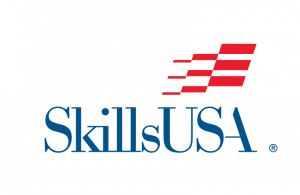 As a state Career Technical Education (CTE) leader, you’ve likely heard the phrase “skills gap” many times. We hear it often at
As a state Career Technical Education (CTE) leader, you’ve likely heard the phrase “skills gap” many times. We hear it often at 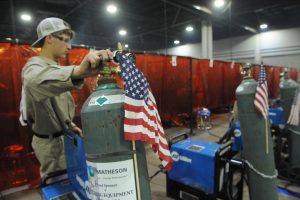
 According to the recent
According to the recent 
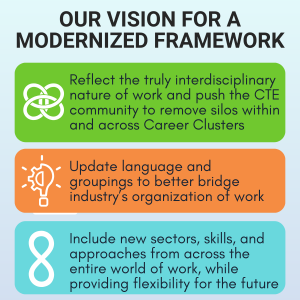
 Kate Kreamer, Executive Director
Kate Kreamer, Executive Director  This week the House Appropriations Subcommittee for Labor, Health and Human Services, and Education (Labor-HHS-ED)—the entity responsible for determining funding for the
This week the House Appropriations Subcommittee for Labor, Health and Human Services, and Education (Labor-HHS-ED)—the entity responsible for determining funding for the  Despite the passage of this legislation, the future for H.R. 6655 remains uncertain. Senate leaders on the Health, Education, Labor, and Pensions (HELP) Committee, including Chair Sanders (D-VT) and Ranking Member Cassidy (R-LA), are currently working to negotiate a separate legislative proposal to reauthorize WIOA potentially later this spring. As these efforts continue to take shape, Advance CTE will continue to advocate for the organization’s
Despite the passage of this legislation, the future for H.R. 6655 remains uncertain. Senate leaders on the Health, Education, Labor, and Pensions (HELP) Committee, including Chair Sanders (D-VT) and Ranking Member Cassidy (R-LA), are currently working to negotiate a separate legislative proposal to reauthorize WIOA potentially later this spring. As these efforts continue to take shape, Advance CTE will continue to advocate for the organization’s 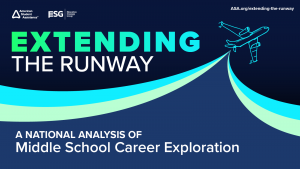 In recent years, middle school career exploration has gained traction as a foundational element of Career Technical Education (CTE). As many State CTE Directors and leaders know, the
In recent years, middle school career exploration has gained traction as a foundational element of Career Technical Education (CTE). As many State CTE Directors and leaders know, the 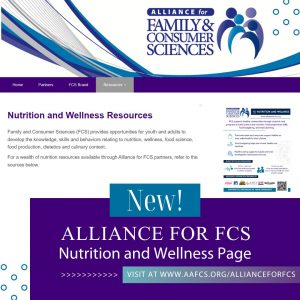
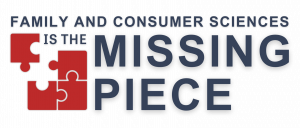 The importance of comprehensive student career preparation for life’s modern challenges is increasingly apparent in the evolving landscape of education and workforce development. Family and Consumer Sciences (FCS) is a pivotal solution, bridging career preparation and employability skills for holistic student readiness across various career facets.
The importance of comprehensive student career preparation for life’s modern challenges is increasingly apparent in the evolving landscape of education and workforce development. Family and Consumer Sciences (FCS) is a pivotal solution, bridging career preparation and employability skills for holistic student readiness across various career facets.
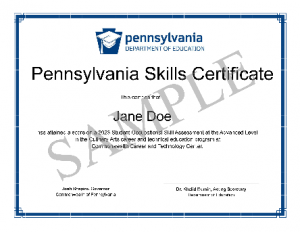 State CTE leaders utilize data as feedback to continuously improve systems, celebrate high-quality programs, and target areas for improvement. For example, the Pennsylvania Department of Education (PDE) utilizes NOCTI/NBS assessments and data for various purposes, including program evaluation, curriculum alignment, instructional improvement, professional development, and accountability. Learners meeting state-established benchmarks are eligible for the Pennsylvania Skills Certificate (PSC), recognizing individual advanced technical skill achievement.
State CTE leaders utilize data as feedback to continuously improve systems, celebrate high-quality programs, and target areas for improvement. For example, the Pennsylvania Department of Education (PDE) utilizes NOCTI/NBS assessments and data for various purposes, including program evaluation, curriculum alignment, instructional improvement, professional development, and accountability. Learners meeting state-established benchmarks are eligible for the Pennsylvania Skills Certificate (PSC), recognizing individual advanced technical skill achievement. High-quality CTE systems involve business/industry partners in verifying skills, ensuring learner assessments accurately reflect expertise. This practice not only benefits learners but also provides industry employees with an opportunity to contribute meaningfully to CTE schools and programs. As one evaluator recently summarized, “I am always willing to set time aside to work with these learners and programs, as this is the future of my industry–one that I care about and want to impact.”
High-quality CTE systems involve business/industry partners in verifying skills, ensuring learner assessments accurately reflect expertise. This practice not only benefits learners but also provides industry employees with an opportunity to contribute meaningfully to CTE schools and programs. As one evaluator recently summarized, “I am always willing to set time aside to work with these learners and programs, as this is the future of my industry–one that I care about and want to impact.” Lawmakers Include Focus on Appropriations and WIOA in Next Work Period
Lawmakers Include Focus on Appropriations and WIOA in Next Work Period 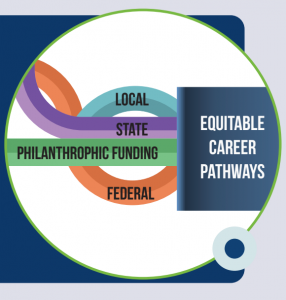 Identify New Funding Streams and Processes.
Identify New Funding Streams and Processes. Please visit
Please visit